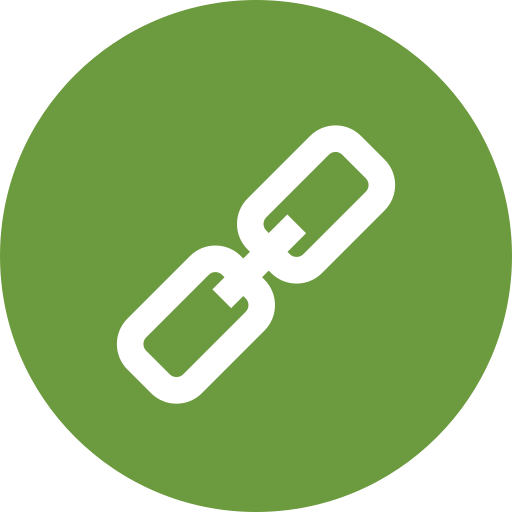| Product name | Per Pill | Savings | Per Pack | Order |
|---|---|---|---|---|
| 60 pills | $0.62 | $37.43 | ADD TO CART | |
| 90 pills | $0.47 | $13.70 | $56.14 $42.44 | ADD TO CART |
| 120 pills | $0.40 | $27.40 | $74.86 $47.46 | ADD TO CART |
| 180 pills | $0.32 | $54.79 | $112.28 $57.49 | ADD TO CART |
| 270 pills | $0.27 | $95.89 | $168.43 $72.54 | ADD TO CART |
| 360 pills | $0.24 | $136.99 | $224.57 $87.58 | ADD TO CART |
| Product name | Per Pill | Savings | Per Pack | Order |
|---|---|---|---|---|
| 60 pills | $0.47 | $28.07 | ADD TO CART | |
| 90 pills | $0.40 | $6.40 | $42.11 $35.71 | ADD TO CART |
| 120 pills | $0.36 | $12.80 | $56.14 $43.34 | ADD TO CART |
| 180 pills | $0.33 | $25.60 | $84.21 $58.61 | ADD TO CART |
| 270 pills | $0.30 | $44.80 | $126.32 $81.52 | ADD TO CART |
| 360 pills | $0.29 | $64.00 | $168.43 $104.43 | ADD TO CART |
| Product name | Per Pill | Savings | Per Pack | Order |
|---|---|---|---|---|
| 90 pills | $0.31 | $27.55 | ADD TO CART | |
| 180 pills | $0.25 | $10.65 | $55.10 $44.45 | ADD TO CART |
| 270 pills | $0.23 | $21.31 | $82.66 $61.35 | ADD TO CART |
| 360 pills | $0.22 | $31.96 | $110.21 $78.25 | ADD TO CART |
Clozaril, also known as clozapine, is a medication used to treat schizophrenia and other mental health conditions. It belongs to a class of medications known as atypical antipsychotics, which work by altering the actions of chemicals in the brain to improve symptoms of psychosis. In this article, we will delve into the world of Clozaril, exploring its uses, benefits, and potential side effects. We will also discuss how to order Clozaril, buy Clozaril, and purchase Clozaril cheap online, as well as the various dosages available, including 25 mg Clozaril, 50 mg Clozaril, and 100 mg Clozaril.
What is Clozaril?
Clozaril is a medication that is used to treat schizophrenia, a mental health condition characterized by hallucinations, delusions, and disorganized thinking. It is also used to treat other conditions, such as bipolar disorder and severe depression. Clozaril works by blocking the actions of certain chemicals in the brain, such as dopamine and serotonin, which are thought to contribute to the development of psychotic symptoms.
Benefits of Clozaril
The benefits of Clozaril are numerous. It has been shown to be effective in reducing the symptoms of schizophrenia, including hallucinations, delusions, and disorganized thinking. It has also been shown to improve mood and reduce the risk of suicidal behavior. Additionally, Clozaril has been found to be effective in treating other mental health conditions, such as bipolar disorder and severe depression.
Dosages of Clozaril
Clozaril is available in several dosages, including 25 mg Clozaril, 50 mg Clozaril, and 100 mg Clozaril. The dosage and frequency of administration will depend on the individual's condition and response to treatment. It is essential to follow the instructions of a healthcare professional when taking Clozaril, as the dosage and frequency of administration can affect the efficacy and safety of the medication.
How to Order Clozaril
If you are interested in ordering Clozaril, buying Clozaril, or purchasing Clozaril cheap online, there are several options available. You can consult with a healthcare professional, who can provide a prescription and recommend a reputable online pharmacy. You can also search for online pharmacies that offer cheap Clozaril 50 mg free shipping, 25 mg Clozaril purchase visa, or 100 mg Clozaril buy with mastercard.
Table 1: Dosages and Prices of Clozaril
| Dosage | Price |
|---|---|
| 25 mg Clozaril | $10.99 - $19.99 |
| 50 mg Clozaril | $19.99 - $29.99 |
| 100 mg Clozaril | $29.99 - $39.99 |
Side Effects of Clozaril
While Clozaril is generally well-tolerated, it can cause some side effects. Common side effects include:
- Drowsiness
- Dizziness
- Nausea
- Vomiting
- Constipation
- Dry mouth
Less common side effects include:
- Weight gain
- Increased risk of diabetes
- Increased risk of heart disease
- Seizures
- Agranulocytosis (a rare blood disorder)
Precautions and Contraindications
Clozaril is not suitable for everyone. It is essential to inform your healthcare professional about any medical conditions, including:
- Pregnancy or breastfeeding
- History of heart disease
- History of diabetes
- History of seizures
- History of agranulocytosis
Lists of Precautions and Contraindications
Here are some lists of precautions and contraindications to consider:
- Do not take Clozaril if you:
- Are pregnant or breastfeeding
- Have a history of heart disease
- Have a history of diabetes
- Have a history of seizures
- Have a history of agranulocytosis
- Inform your healthcare professional if you:
- Have a medical condition
- Are taking other medications
- Have a history of substance abuse
- Have a history of mental health conditions
Generic Clozaril
Generic Clozaril is available in several dosages, including generic 50 mg Clozaril with mastercard, generic 100 mg Clozaril overnight delivery, and generic 25 mg Clozaril visa. Generic Clozaril is a cost-effective alternative to brand-name Clozaril, offering the same efficacy and safety at a lower price.
Table 2: Generic Clozaril Options
| Dosage | Price |
|---|---|
| Generic 25 mg Clozaril | $5.99 - $14.99 |
| Generic 50 mg Clozaril | $14.99 - $24.99 |
| Generic 100 mg Clozaril | $24.99 - $34.99 |
Conclusion
Clozaril is a medication that has been shown to be effective in treating schizophrenia and other mental health conditions. It is available in several dosages, including 25 mg Clozaril, 50 mg Clozaril, and 100 mg Clozaril. If you are interested in ordering Clozaril, buying Clozaril, or purchasing Clozaril cheap online, it is essential to consult with a healthcare professional and follow their instructions. Additionally, generic Clozaril is a cost-effective alternative to brand-name Clozaril, offering the same efficacy and safety at a lower price. Remember to always prioritize your health and safety when taking any medication, and inform your healthcare professional about any medical conditions or concerns you may have.
Schizophrenia is a chronic and severe mental disorder that affects millions of people worldwide. It is characterized by a range of symptoms, including hallucinations, delusions, disorganized thinking, and negative symptoms such as social withdrawal and lack of motivation. Treating schizophrenia in patients requires a comprehensive approach that incorporates medication, therapy, and lifestyle changes. In this article, we will discuss the various treatment options available for schizophrenia and provide a comprehensive overview of the condition.
Understanding Schizophrenia
Before we dive into the treatment options, it is essential to understand the condition itself. Schizophrenia is a complex disorder that affects the brain's structure and function. It is believed to be caused by a combination of genetic, environmental, and neurochemical factors. The symptoms of schizophrenia can vary from person to person, but they typically include:
- Hallucinations: Hearing or seeing things that are not there
- Delusions: Believing things that are not true
- Disorganized thinking: Difficulty organizing thoughts and speech
- Negative symptoms: Social withdrawal, lack of motivation, and flat affect
Treatment Options
Treating schizophrenia in patients requires a multi-faceted approach that incorporates medication, therapy, and lifestyle changes. The following are some of the most common treatment options:
| Treatment Option | Description |
|---|---|
| Medication | Antipsychotic medications are the primary treatment for schizophrenia. They help to reduce symptoms such as hallucinations and delusions. |
| Cognitive-Behavioral Therapy (CBT) | CBT is a type of therapy that helps patients to identify and change negative thought patterns and behaviors. |
| Family Therapy | Family therapy involves working with the patient's family members to educate them about the condition and provide support. |
| Social Skills Training | Social skills training helps patients to develop skills such as communication, problem-solving, and relationships. |
| Lifestyle Changes | Lifestyle changes such as regular exercise, healthy eating, and stress management can help to reduce symptoms and improve overall health. |
Medication
Medication is the primary treatment for schizophrenia. Antipsychotic medications help to reduce symptoms such as hallucinations and delusions. There are two types of antipsychotic medications:
- Typical Antipsychotics: These medications have been used for decades to treat schizophrenia. They are effective in reducing symptoms, but they can have significant side effects such as tremors, rigidity, and weight gain.
- Atypical Antipsychotics: These medications are newer and have fewer side effects than typical antipsychotics. They are also effective in reducing symptoms and improving cognitive function.
Some of the most common antipsychotic medications used to treat schizophrenia include:
- Haloperidol (Haldol)
- Risperidone (Risperdal)
- Quetiapine (Seroquel)
- Olanzapine (Zyprexa)
- Clozapine (Clozaril)
Therapy
Therapy is an essential component of schizophrenia treatment. The following are some of the most common types of therapy used to treat schizophrenia:
- Cognitive-Behavioral Therapy (CBT): CBT helps patients to identify and change negative thought patterns and behaviors.
- Family Therapy: Family therapy involves working with the patient's family members to educate them about the condition and provide support.
- Social Skills Training: Social skills training helps patients to develop skills such as communication, problem-solving, and relationships.
- Psychodynamic Therapy: Psychodynamic therapy helps patients to understand and work through underlying emotional issues.
Lifestyle Changes
Lifestyle changes can play a significant role in reducing symptoms and improving overall health. The following are some lifestyle changes that can help:
- Regular Exercise: Regular exercise can help to reduce symptoms such as anxiety and depression.
- Healthy Eating: Eating a healthy diet can help to improve overall health and reduce symptoms.
- Stress Management: Stress management techniques such as meditation and yoga can help to reduce stress and improve overall well-being.
- Social Support: Social support from family and friends can help to improve overall well-being and reduce symptoms.
Benefits of Treatment
Treating schizophrenia in patients can have numerous benefits, including:
- Reduced Symptoms: Treatment can help to reduce symptoms such as hallucinations and delusions.
- Improved Cognitive Function: Treatment can help to improve cognitive function, including attention, memory, and processing speed.
- Improved Quality of Life: Treatment can help to improve overall quality of life, including social relationships, employment, and daily functioning.
- Reduced Risk of Relapse: Treatment can help to reduce the risk of relapse and hospitalization.
Challenges of Treatment
Treating schizophrenia in patients can be challenging, and there are several obstacles that can hinder treatment. Some of the most common challenges include:
- Medication Side Effects: Medication side effects can be significant and may lead to non-adherence.
- Lack of Access to Care: Lack of access to care, including medication and therapy, can hinder treatment.
- Stigma and Discrimination: Stigma and discrimination can prevent patients from seeking treatment and disclosing their condition.
- Comorbid Conditions: Comorbid conditions such as depression and anxiety can complicate treatment.
Conclusion
Treating schizophrenia in patients requires a comprehensive approach that incorporates medication, therapy, and lifestyle changes. While there are many challenges associated with treatment, the benefits of treatment can be significant. By understanding the condition and the various treatment options available, patients and families can work together to develop a treatment plan that meets their unique needs and improves overall quality of life.
Recommendations
Based on the information presented in this article, the following are some recommendations for treating schizophrenia in patients:
- Early Intervention: Early intervention is critical in reducing symptoms and improving overall outcomes.
- Comprehensive Treatment: Comprehensive treatment that incorporates medication, therapy, and lifestyle changes is essential for optimal outcomes.
- Family Support: Family support and education are critical in helping patients to manage their condition and improve overall quality of life.
- Access to Care: Access to care, including medication and therapy, is essential for optimal outcomes.
By following these recommendations and working together with healthcare providers, patients and families can develop a treatment plan that meets their unique needs and improves overall quality of life.
























